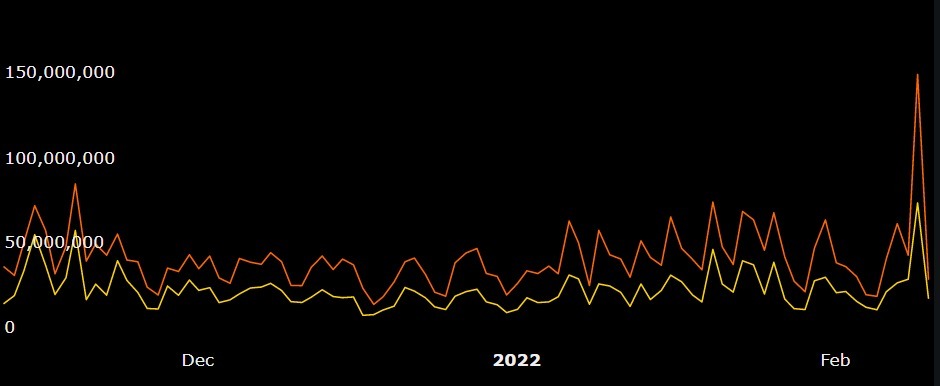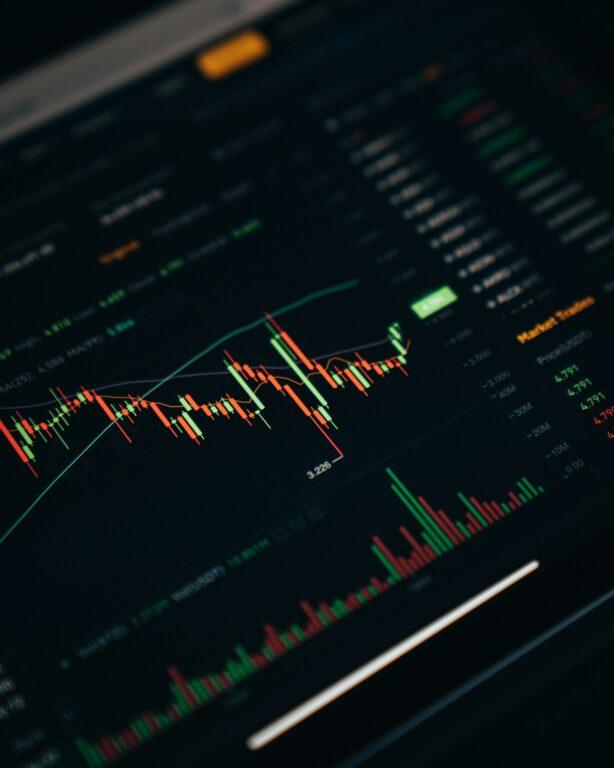A popular Ukrainian cryptocurrency exchange, Kuna, has seen its trading volume explode after Russian President Vladimir Putin announced a “special military operation,” which appears to be a full-scale invasion of the country.
In a televised speech, President Putin warned the United States and NATO against getting involved, saying that anyone who “tries to interfere with us, or even more so, to create threats for our country and our people, must know that Russia’s response will be immediate and will lead you to such consequences as you have never before experienced in your history.”
Data from CryptoCompare shows that on average the exchange’s trading volume was hovering around 45 million Ukrainian hryvnia (UAH) per day, and shows that on the day Russia’s invasion started, its trading volume exploded to 150 million UAH, equivalent to around $5 million.

Kuna’s trading volumes exploded as the invasion started and markets reacted to Putin’s announcement. Both the Russian ruble and the Ukrainian hryvnia saw their values plummet as military operations started, with the ruble enduring a noticeable harsher downtrend. Russia’s MOEX index dropped around 45% at one point.
Ukraine, which saw its legislators vote to legalize cryptocurrencies earlier this month, has seen its central bank suspend electronic cash transfers after a nationwide martial law was declared. The National Bank of Ukraine has also limited cash withdrawals to 100,000 UAH per day, equivalent to around $3,350.
The central bank has banned cross-border foreign currency purchases and withdrawals as it suspends foreign exchange markets and looks to establish a stable hryvnia exchange rate. Exchange rates on Kuna show that traders are paying a premium for Tether’s USDT stablecoin.
According to its data, USDT is trading, at the time of writing, for 32.31 UAH, equivalent to $1.08. Against the USD, the stablecoin is trading at $1.04. Kuna’s founder Michael Chobanian said in an interview with Coindesk:
We don’t trust the government. We don’t trust the banking system. We don’t trust the local currency. The majority of people have nothing else to choose apart from crypto.
Before Russia’s attack, Ukraine planned to open the cryptocurrency market to businesses and investors. In legalizing cryptocurrencies in the country, Ukrainian legislators also determined the country’s National Securities Commission was to regulate the cryptocurrency market, issuing permits to service providers and monitoring activities.
DISCLAIMER
The views and opinions expressed by the author, or any people mentioned in this article, are for informational purposes only, and they do not constitute financial, investment, or other advice. Investing in or trading cryptoassets comes with a risk of financial loss.
IMAGE CREDIT
Featured image via Unsplash









